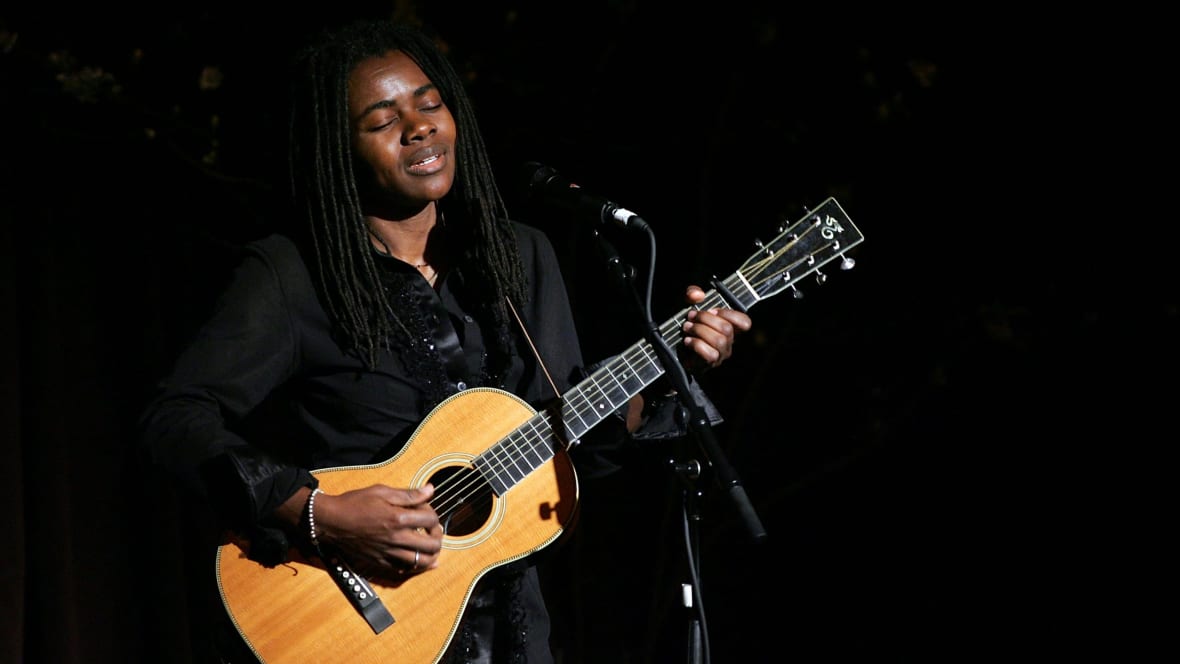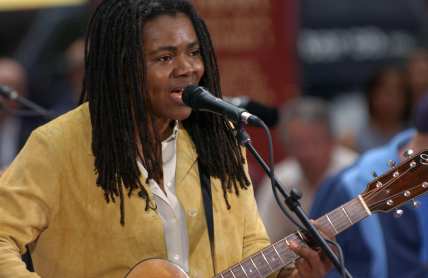Notes on Faith: What the triumphs of Tracy Chapman and Jeffrey LaValley teach us about transcendence
Tracy Chapman's return to the top of the music charts and Jeffrey LaValley's enduring gospel classic remind us there is no time limit on transcendent moments.
“Notes on faith” is theGrio’s inspirational, interdenominational series featuring Black thought leaders across faiths.
Have you ever been in a situation where you have felt as though your good work had gone unnoticed?
Personally, no one ever explained to me the dimensions of “hurry up and wait” in everyday life. Instead, I became familiar with the phrase through the entertainment industry, where performers are given the production schedule to ensure that everyone is on time and in place to perform — only to then arrive and wait. Meanwhile, back at the ranch is the master schedule, in which the producers’ timeline allows for more flexibility. And only when the producers are good and ready is your name called, and the show begins.
I wish I had known earlier the kind of patience and cultivation that occurs in the waiting, of the ways in which we can stay ready for the appointed time when our name is called to step into the light. Sometimes we get so distracted by the wait we forget we have anything else to say or do. Even when our star is rising, there can be a crucial gestation period when, if we don’t get weary, our talents can yield returns far beyond what we initially anticipated.
Your time is coming.

After 35 years, this week, composer and vocalist Tracy Chapman’s 1988 hit debut, “Fast Car,” resurged again to #1 on country music charts, courtesy of Luke Combs’ crossover cover for his Gettin’ Old album. “[A] story song about a woman who wants to escape poverty,” as noted by theGrio’s Touré, Chapman’s “powerful, plaintive, bluesy, folksy, unforgettable song” might never have made it to the mainstream in the first place if not for another recently recharged issue: affirmative action. A masterful storyteller, I can’t help but celebrate Chapman as a griot — and now, the only Black woman sole writer to top the chart on a country album.
On some level, this industry recognition is poetic justice. Ever the trailblazer, Chapman has reclaimed the folk and rock-and-roll genres throughout her career; realms African American artists pioneered. Similarly, over the last ten years, country music has been rightly reclaimed by African Americans after decades of the popular genre only being occasionally integrated by the likes of recording artist Charley Pride and a handful of others.
Though Chapman was catapulted to instant success with the initial release of “Fast Car,” the massive returns on that notoriety have been a long time coming. Her story teaches us that sometimes we do the work – and perhaps to much acclaim – without knowing there is more or that we are in between times, waiting for the fruits of our labor to fully mature and materialize on the journey called life.
However, in today’s entertainment industry, Chapman is one of several artists experiencing a renaissance. Jeffrey LaValley is another artist transcending time and genre to see returns in the gospel music industry after nearly 40 years.
Similar to Chapman’s resurgence in country music, LaValley’s gospel composition “Revelations 19:1” (1985) has endured for over three decades, transporting listeners and evoking the timeless essence of the genre.
Among musicians trained in “the academy of the church,” there is a repertoire of songs we know immediately prompt people to move from passive to active participation in worship, entering into a space of transcendence and transformation. Professor LaValley’s “Revelations 19:1,” aka “Hallelujah, Salvation, and Glory,” has long been one of them. While the song has been interpreted by various artists such as Stephen Hurd (in 2010), it gained new audiences when performed by Ye for his Grammy Award-winning album “Jesus is Born” (2019). The song’s timelessness was further confirmed when recorded by Maverick City Gospel Choir featuring Naomi Raine (2021) for their Dove Award-nominated Christmas album.
For those who grew up “churched,” “Revelations 19:1” is a musical time machine transporting us to memories of great worship experiences while enacting a scene from the biblical story of a prophesied series of apocalyptic events to come.
In my recent conversation with composer and pianist LaValley at the Music and Arts Global seminar in London, he recounted that the song was spontaneously commissioned by Bishop Odis A. Floyd at New Jerusalem Baptist Church. LaValley said the pastor approached him during communion service one Sunday when the “spirit was high” and “flung” the Bible down on the organ, instructing LaValley, “Sing this.” It was opened to Revelation 19:1. Despite his reluctance as a singer, LaValley sang the first melody that came to him, which became the first verse of the composition when he later recorded it. On the resulting album, listeners can hear Bishop Floyd render a related sermon as an introduction just before the song.
After almost 40 years of his song being sung in incalculable congregations, Professor LaValley unexpectedly saw the fruits of the text that urges us: “And let us not be weary in well doing, for in due season we shall reap, if we faint not” (Galatians 16:9).
“Nobody could ever tell me,” LaValley said, “that something sang 40 years ago would be ringing on the earth today.”
Reflecting on the longevity and impact of Chapman and LaValley’s compositions, it becomes evident that a creation’s power lies not only in its commercial or immediate success but in its ability to connect individuals to moments of transcendence and the truth of everyday life.
You, too, have a song that no one else can compose; a song that is true to your story. And the beautiful part is that you do not need to have a soloist’s voice or even to sing to compose your timeless song. When your name is called and the spirit is high, there is a blessing in responding to transcendent moments with your creative substance. Whether your transcendent moment is as you “get your life” cooking or partaking in a great meal, spending time with loved ones, or through traditional worship, be intentional about honoring the culture and the cultural producers. Our collective vitality depends on it.
I hope you hang on, friend.
Tell your stories, with weary throats and all.
My prayer for you is that you won’t be weary in doing well.
May you be heard in due time.
And whenever your moment arrives,
I pray that the moment will not be too big for you.
Your voice will make sense for the moment.

Rev. Dr. Alisha Lola Jones is a faith leader helping people to find their groove in a fast-paced world, as a consultant for various arts and faith organizations and professor of music in contemporary societies at the University of Cambridge in Cambridge, England. She is an award-winning author of Flaming? The Peculiar Theopolitics of Fire and Desire in Black Male Gospel Performance (Oxford University Press). For more information, please visit DrAlisha.com.
TheGrio is FREE on your TV via Apple TV, Amazon Fire, Roku, and Android TV. TheGrio’s Black Podcast Network is free too. Download theGrio mobile apps today! Listen to ‘Writing Black‘ with Maiysha Kai.


